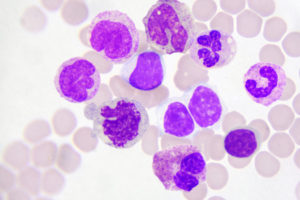[su_pullquote align=”right”]Terms to know:
Biologic—Made from living organisms and manufactured through biotechnology, these medications are among those used to treat conditions such as rheumatoid arthritis, psoriasis and various forms of cancer.
Biosimilar—A type of biological product that is licensed (approved) by the Food and Drug Administration (FDA) because it’s similar to an already FDA-approved biological product; shown to have no clinically meaningful differences from the reference product.
Interchangeable—a biological product expected to produce the same clinical result as the reference product in any given patient.[/su_pullquote]
With the state legislative session winding down, U.S. Pain would like to provide highlights of what took place and what is still in the works when it comes to biologics and biosimilar bills. U.S. Pain is pleased to share that the interchangeable biosimilars bill in New York, S4788, passed the state legislature last week. Calls were made to Senators in an effort to ensure support of this legislation, which would enact provisions relating to substitutions of biological products by pharmacists. It is now awaiting delivery to the governor.
There were a handful of states that ensured patient safety by passing bills to increase communications requirements surrounding biosimilars and biologics; prescribers are now to be notified if an interchangeable medication has been dispensed.
Those states included the following:
Iowa (HSB 38): A bill for an act relating to the prescribing of biological products and making penalties applicable. Signed by Gov, Branstad on March 10, 2017.
Kansas (HB 2055, of which the provisions in HB 2107 are included): A bill that concerns public health, relates to the pharmacy act of the state of Kansas, and pertains to biological products. Signed by Gov.Brownback on April 13, 2017.
South Carolina (HB 3438): A bill to address labeling, prescriber notification, and other requirements applicable to interchangeable biological products. Signed by Gov. McMaster on April 24, 2017.
Maryland (HB 1273): A bill that authorizes a pharmacist to substitute an interchangeable biological product for the prescribed product under specified circumstances; requires a pharmacist or the pharmacist’s designee, except under specified circumstances, to inform specified consumers of the availability of an interchangeable biological product and the approximate cost difference as compared to a specified drug; requires the State Board of Pharmacy to maintain on its website a link to a specified list of biological products; etc. Approved by Gov. Hogan on May 25, 2017.
Nebraska (LB 481): A bill to provide for drug product selection for interchangeable biological products. Approved by Gov. Ricketts; signing ceremony date and time TBD.
Nevada (AB 245): Enacts provisions governing the dispensing of biological products and interchangeable biological products. Approved by Gov. Sandoval on May 26, 2017.
New Mexico (HB 260): A bill for an act to amend the NM Drug, Device and Cosmetic Act to provide for regulation of biosimilar products. Signed by Go. Martinez on April 6, 2017.
Wyoming (SF 0121): An act relating to the Wyoming Pharmacy Act; modifying grounds for suspension and revocation of pharmacy licenses; modifying responsibilities of the secretary of the state board of pharmacy; modifying provisions related to examination and reexamination; modifying mailing requirements for license renewal notices and examination notices; removing authorization for the board to credit continuing education units to another year; modifying drug substitution procedures; authorizing pharmacists to dispense biosimilars as specified; modifying definitions; removing obsolete language; repealing provisions related to pharmacist pedigree documents; and providing for an effective date. Signed by Gov. Mead on March 8, 2017.
Outside of those bills turned into law, there is still activity taking place across the nation. Those states include:
Alabama (HB 82): Under existing law, the Alabama State Board of Pharmacy regulates the manner in which a licensed pharmacist may dispense a different drug or brand of d rug than that ordered or prescribed without the express permission of the person ordering or the prescriber. This bill would authorize licensed pharmacists to dispense a substitute biological product for certain biological products that have been identified as interchangeable or therapeutically equivalent by the federal Food and Drug Administration. Awaiting action in House.
rug than that ordered or prescribed without the express permission of the person ordering or the prescriber. This bill would authorize licensed pharmacists to dispense a substitute biological product for certain biological products that have been identified as interchangeable or therapeutically equivalent by the federal Food and Drug Administration. Awaiting action in House.
Alaska (SB 32): An act relating to biological products; relating to the practice of pharmacy; relating to the Board of Pharmacy; and providing for an effective date. Awaiting next committee hearing; the state’s second special session began on June 16.
Arkansas (HB 1204): A bill to allow pharmacists to make biological product substitutions. Recommended for study in the Interim by Joint Interim Committee on public health, welfare and labor committee – house; awaiting hearing date.
Michigan (HB 4472): A bill to amend 1978 PA 368, entitled “Public health code,” by amending sections 17702, 17704, and 17755 (MCL 333.17702, 333.17704, and 333.17755), sections 17702 and 17704 as amended by 2014 PA 280. Session is being held this month and will continue; next activity is TBD.
Minnesota (HF 712, House): Biological product substitution standards established, and definitions modified and added. Governor’s action approval on May 23, 2017; next activity TBD.
Minnesota (SF 1184, Senate): Biological products substitution standards establishment and pharmaceutical drug definition modification. Next activity is TBD.
Vermont (SB 92): An act directing pharmacists to fill prescriptions for biological products with an interchangeable biological product unless otherwise specified by the prescriber or the purchaser. Awaiting a hearing date.
For more information on biologics and biosimilars, click here.
